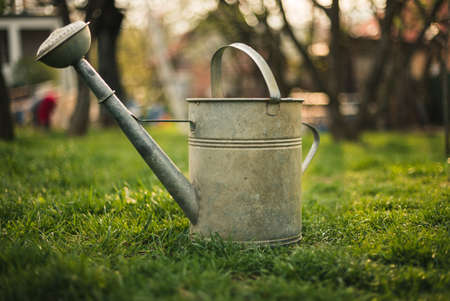Introduction to Greywater Recycling
If you’ve ever paused at the kitchen sink, watching soapy water spiral down the drain, you might have wondered if there’s a better use for it—especially as we all become more conscious of our environmental footprint. Greywater recycling is a practical approach that’s gaining traction in British households, and not without good reason. With the UK experiencing unpredictable weather patterns—one moment a deluge, the next a hosepipe ban—the topic of water conservation is more relevant than ever.
Greywater refers to gently used water from baths, sinks, washing machines, and showers. Unlike blackwater (from toilets), greywater doesn’t contain serious contaminants and can be safely reused for purposes like garden irrigation. For those tending to their home gardens—a cherished pastime for many Brits—greywater offers a way to keep lawns lush and borders blooming even when official advice urges caution on water usage.
In recent years, government campaigns and local initiatives have highlighted the need to use water wisely. Greywater recycling fits neatly into this ethos, helping homeowners reduce mains water consumption while fostering a closer connection to their gardens and the rhythms of nature. It’s not just about saving pennies on your water bill; it’s about playing your part in a wider movement towards sustainability and resilience in the face of climate change.
Legal and Regulatory Framework in the UK
When it comes to recycling greywater in UK home gardens, understanding the legal landscape is vital for both compliance and peace of mind. The UK does not have a single, unified law specifically governing domestic greywater recycling. Instead, a patchwork of regulations from national legislation, local council bylaws, and guidance from environmental agencies shapes what homeowners can and cannot do. Below, I’ll walk you through the essentials that every British gardener should keep in mind before setting up a greywater system.
National Legislation
The Water Industry Act 1991 serves as the primary legal backdrop. It prohibits any action that could contaminate public water supplies or interfere with sewerage systems. Homeowners must ensure that their greywater system does not allow untreated wastewater to enter mains drainage or public watercourses. Additionally, the Building Regulations 2010 (Part G) require all plumbing work—including greywater systems—to meet health and safety standards, particularly those concerning cross-contamination risks.
Local Council Guidelines
Many local authorities have their own requirements regarding water reuse. Some councils may insist on permits for installing greywater systems, especially if they involve underground tanks or modifications to existing plumbing. Its wise to consult your local council’s environmental health department before making any changes. A quick phone call or visit can save you from inadvertently breaching obscure rules that sometimes trip up even experienced gardeners.
| Regulatory Aspect | Relevant Authority | Key Considerations |
|---|---|---|
| System Installation | Local Council | Planning permission, building control approval |
| Water Quality Standards | Environment Agency | No discharge of pollutants into groundwater or surface water |
| Health & Safety | Public Health England | Avoidance of cross-contamination with potable water supply |
| Sewerage Interference | Water Utility Company | No unauthorised connections to sewer networks |
Environmental Agency Guidance
The Environment Agency provides advice rather than hard-and-fast rules, focusing on safeguarding water quality and ecosystems. They recommend using only biodegradable soaps and cleaning products if your greywater will be used for irrigation. Moreover, they highlight the importance of not storing greywater for more than 24 hours due to bacterial growth risks.
Commonly Overlooked Regulations
A few points often escape notice: first, water companies may prohibit certain types of diversion or storage without formal approval; second, some conservation areas have stricter local restrictions; third, regular maintenance and inspection are required to prevent odour or mosquito issues—this is sometimes specified in council guidelines but easy to miss in the small print.
Taken together, these rules ensure that while greywater recycling can be a practical addition to British gardens, it requires careful planning and ongoing attention to regulation. Always double-check with your local council and relevant agencies before getting started; it’s better to be safe—and legal—than sorry.

3. Practical Considerations for Home Gardeners
If you’re thinking about setting up a greywater recycling system in your UK home garden, it pays to start simple and practical. Years of tending to gardens and household plumbing have taught me that success lies in careful planning and knowing your limits—both in terms of what your garden can handle, and what you’ve time and energy for.
Choosing Suitable Greywater Sources
The most straightforward sources of greywater are usually bath, shower, and washbasin water. These tend to be the least contaminated and easiest to redirect safely. Kitchen sink water is generally best avoided because it contains fats, food scraps, and detergents that can clog pipes or harm plants. Likewise, never use water from toilets (that’s blackwater) or from nappy-washing machines due to high pathogen risk.
Treatment Methods: Keeping It Simple and Safe
For most home gardeners, basic filtration is often sufficient. This might mean using a mesh filter or gravel trap to catch hair and debris before the water reaches your garden beds. More elaborate systems can include sand filters or even constructed wetlands, but these require more space and upkeep. Whatever the system, make sure greywater doesn’t sit around too long—a day or two at most—otherwise you risk foul smells and bacteria growth.
Common Pitfalls to Avoid
Avoid storing untreated greywater for extended periods; it quickly goes off. Don’t let greywater pool on the soil surface where children or pets play—always direct it below mulch or into sub-surface irrigation pipes. Watch out for chemical build-up from soaps and cleaning products; stick to eco-friendly brands if possible. And remember, overwatering is as harmful as underwatering—so keep an eye on your plants’ needs, especially during rainy British summers.
By starting small—perhaps with a single bathwater diversion—and observing how your garden responds, you’ll soon develop the confidence to expand your system if desired. Like many things in life, steady progress and attention to detail will see you right.
4. Benefits and Risks for British Gardens
Embracing greywater recycling in the UK’s home gardens brings a host of practical benefits, especially given our changeable weather and occasional hosepipe bans. On the plus side, using greywater on lawns and flowerbeds can help conserve precious mains water, reduce utility bills, and keep gardens thriving during drier spells—a definite boon for gardeners keen to maintain a green oasis when rainfall is patchy.
Advantages of Greywater Use in UK Gardens
| Benefit | Description |
|---|---|
| Water Conservation | Reduces reliance on mains water during dry periods common in British summers. |
| Cost Savings | Lowers household water bills by reusing water from baths, sinks, and washing machines. |
| Resilience to Drought | Keeps lawns and borders healthy even during hosepipe bans or drought warnings. |
Candid Warnings: Potential Risks
Yet, it’s not all rosy—greywater does carry certain risks that every seasoned gardener should weigh up before watering the roses. Greywater often contains residues from soaps, detergents, and personal care products, which may not be suitable for all plants or soil types. Over time, these substances can alter soil structure or pH, leading to stunted plant growth or even damage to sensitive species.
Common Risks Associated with Greywater
| Risk | Impact on Garden |
|---|---|
| Chemical Build-up | Sodium and phosphates can accumulate in soil, affecting its fertility and structure. |
| Pest Attraction | Organic residues might attract pests such as flies or rodents if not managed carefully. |
| Plant Sensitivity | Certain flowers (like camellias or azaleas) are particularly sensitive to greywater components. |
Health Considerations for Gardeners
A final word to the wise: always avoid using greywater containing harsh cleaning agents or from sources that may have come into contact with nappies or food waste. There’s a small but real risk of pathogens if hygiene isn’t observed, so take care when watering edible crops—best stick to ornamental beds and lawns. By balancing these pros and cons with a bit of good old-fashioned common sense, British gardeners can get the best out of their plots without falling foul of unintended consequences.
5. Environmental Impact and Sustainability
When we take a step back and look at greywater recycling in the context of UK home gardens, its clear this practice offers more than just savings on the water bill. At its heart, recycling greywater is a practical way for households to play their part in addressing the growing pressures on our water resources. With unpredictable weather patterns and increased demand, every drop counts—especially in parts of the UK where hosepipe bans and drought warnings have become more frequent. By reusing bath or washing-up water for the garden, families can significantly reduce their reliance on mains supply, easing the load not only on local infrastructure but also on the wider environment.
But it’s not just about numbers on a meter. Using greywater thoughtfully encourages us to be more mindful of what we pour down the drain, from soaps to detergents, knowing it could end up nourishing our plants. This small shift in habit can lead to greater awareness of everyday consumption and waste, gently nudging us all toward greener living. For those with a traditional British love of gardening, there’s an extra layer to consider: protecting local wildlife. Done right, greywater use should never compromise the health of our hedgehogs, birds, or pollinators that visit garden spaces. Simple practices like avoiding harsh chemicals and letting water settle before use help ensure that recycled water supports lush growth without harming these cherished creatures.
In essence, greywater recycling fits neatly into the broader movement toward sustainability—connecting individual choices with community wellbeing. It’s an old-fashioned bit of thrift meeting modern environmental challenges head-on. Whether you’re tending to your own patch of lawn or chatting over the fence with neighbours about clever water-saving tricks, every effort adds up. In this way, UK gardeners are not just cultivating beautiful spaces but helping to safeguard precious resources for future generations as well.
6. Anecdotal Wisdom and Community Experiences
If there’s one thing British gardening communities are known for, it’s their willingness to share tips over the fence or a cuppa. When it comes to greywater recycling, many seasoned gardeners across the UK have rolled up their sleeves and learned a few lessons worth passing on. Some have found great success in using bathwater for ornamental beds during drier spells, noting that plants like lavender and rosemary seem unfazed by the mild soaps often present in household water. One allotment holder from Yorkshire recounted how his carefully filtered washing-up water kept his runner beans thriving through an unusually dry summer, though he was quick to stress the importance of steering clear of anything too greasy or laden with harsh detergents.
Real Successes from the Shed
Amongst local gardening clubs, stories abound about saving rainwater barrels for edibles and diverting greywater to less fussy shrubs or lawns. A retired couple in Kent shared that they’d rigged a simple diverter from their bathroom outflow, allowing them to direct water onto their roses. They noted improved blooms and healthier foliage, but also advised regular checks for salt build-up in the soil—a tip echoed by many others who’ve experimented with similar systems.
Practical Advice for Newcomers
The consensus among experienced gardeners is clear: start small and observe how your garden responds before scaling up. Always use eco-friendly, biodegradable soaps if you intend to recycle greywater, and avoid any water containing bleach or strong chemicals. Several green-thumbed neighbours suggest rotating the areas that receive greywater, giving soil time to recover and reducing potential risks of contamination.
Building Community Knowledge
Perhaps the most valuable takeaway is how sharing these stories has fostered a spirit of collaboration. Local councils sometimes organise workshops or information sessions on safe greywater use, and neighbourhood social media groups are full of troubleshooting advice for homemade filtration setups. By leaning on each other’s first-hand experience—and respecting both the environment and legal guidelines—UK gardeners are proving that with care and common sense, greywater recycling can become a sustainable part of home garden life.


